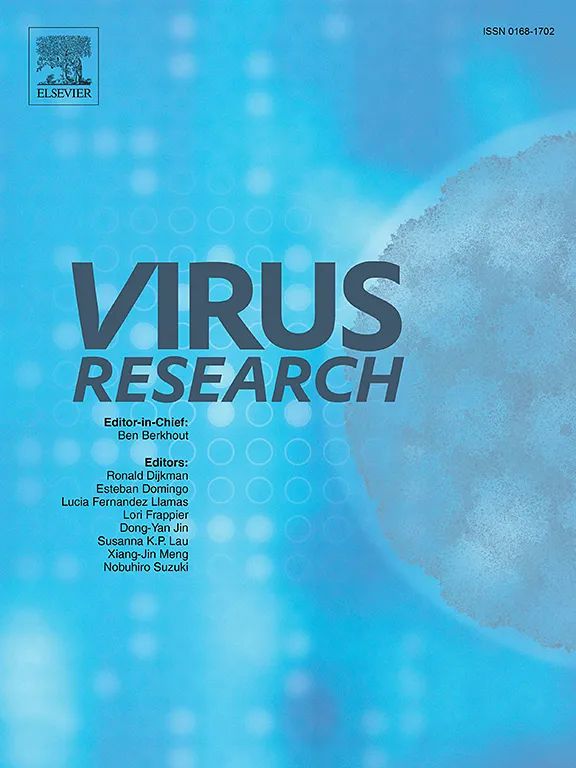Validation of signature molecular profiles of advanced HCV liver disease in hepatocellular carcinoma patients
IF 2.7
4区 医学
Q3 VIROLOGY
引用次数: 0
Abstract
Our previous transcriptome analysis revealed that hepatitis C virus (HCV) infection in hepatocytes regulates the expression of numerous hepatocellular genes in a liver disease stage-specific manner. Based on the fold changes at different stages and the known relevant function of the cellular genes with respect to hepatocellular carcinoma (HCC) and through comprehensive examination with various in silico assays, such as heatmap and volcano analysis for the differential expression, the Cancer Genome Atlas - Hepatocellular Carcinoma (TCGA-HCC) analysis, and molecular approaches, such as qRT-PCR, immunoblot analyses, we have chosen the two up-regulated genes - aldo-keto reductase family 1 member B10 (AKR1B10) and hexokinase domain containing 1 (HKDC1), and two down-regulated genes - glycine N-methyltransferase (GNMT) and C-type lectin domain family 4, member M (CLEC4M), and validated their differential expressions of the genes at disparate stages of liver disease with respect to the development of potential therapeutic targets against HCV-mediated hepatocellular carcinoma (HCC). These data suggested that the differentially expressed genes at various stages could serve as prognostic and diagnostic markers for liver disease progression and may also be utilized in developing therapeutic drugs.
肝细胞癌患者晚期HCV肝病特征分子谱的验证
我们之前的转录组分析显示,肝细胞中的丙型肝炎病毒(HCV)感染以肝脏疾病阶段特异性的方式调节许多肝细胞基因的表达。基于肝细胞癌(HCC)在不同阶段的fold变化和已知的细胞基因的相关功能,通过各种计算机分析,如热图和火山分析的差异表达,癌症基因组图谱-肝细胞癌(TCGA-HCC)分析,以及分子方法,如qRT-PCR,免疫印迹分析,我们选择了两个上调基因——醛酮还原酶家族1成员B10 (AKR1B10)和己糖激酶结构域1 (HKDC1),以及两个下调基因——甘氨酸n-甲基转移酶(GNMT)和c型凝集素结构域家族4成员M (CLEC4M),并验证了它们在肝脏疾病不同阶段的差异表达,以开发针对hcv介导的肝细胞癌(HCC)的潜在治疗靶点。这些数据表明,不同阶段的差异表达基因可以作为肝脏疾病进展的预后和诊断标记,也可以用于开发治疗药物。
本文章由计算机程序翻译,如有差异,请以英文原文为准。
求助全文
约1分钟内获得全文
求助全文
来源期刊

Virus research
医学-病毒学
CiteScore
9.50
自引率
2.00%
发文量
239
审稿时长
43 days
期刊介绍:
Virus Research provides a means of fast publication for original papers on fundamental research in virology. Contributions on new developments concerning virus structure, replication, pathogenesis and evolution are encouraged. These include reports describing virus morphology, the function and antigenic analysis of virus structural components, virus genome structure and expression, analysis on virus replication processes, virus evolution in connection with antiviral interventions, effects of viruses on their host cells, particularly on the immune system, and the pathogenesis of virus infections, including oncogene activation and transduction.
 求助内容:
求助内容: 应助结果提醒方式:
应助结果提醒方式:


